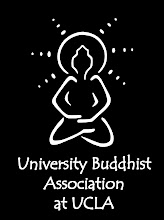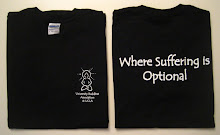"A report released this year showed an astonishingly high number of Protestants — nearly half — say they meditate at least once a week. Among the public, 39 percent meditate at least weekly, according to a report by the Pew Forum on Religion & Public Life.
It's no surprise that people are seeking paths to peace and serenity in our high-octane, 24-hour world.
'We're a mentally focused, hard-core, achievement-oriented society,' says Dr. J. David Forbes, a medical doctor and meditation teacher in Nashville. 'People are finding it hard to quiet the brain down.'"
Meditation, however, still has its share of criticism from Christianity.
"Meditation has been, at times, eyed with suspicion. The Vatican in 1989 went so far as to say that methods such as Zen, yoga and transcendental meditation, can 'degenerate into a cult of the body' and be dangerous.
And the notion that meditation is too way out there for Christians, if not rooted in the Bible, still exists today.
'The idea of emptying the mind is not biblically based,' says Don Whitney, associate professor of biblical spirituality at the Southern Baptist Theological Seminary in Louisville, Ky. 'There can be a danger.'
Referring to meditation's long association with Hinduism, Buddhism and other Eastern religions, Whitney says, 'Some of the yoga stuff, where you're given a mantra, that is rooted in false religions.' He sees no problem with stretching, but once you start chanting, you're treading on treacherous ground, he says.
His beef is that some people are seeking tools to help them live and de-stress. 'That's very selfish,' he says. 'Our lives should be lived to the glory of God.'"
Though not a traditional activity of Christianity, meditation still proves to be empowering for those who practice it.
"A Christian who attends an interdenominational church and considers herself nondenominational, Finch, 42, has also been attending a Buddhist center to meditate.
'Going to church is where I'm being talked to. There is not a lot of silent time,' Finch says. 'I feel the power and presence of God through my meditation.'"






2 comments:
Interfaith is important.
Indeed it is. But I would add on that in order for interfaith to be beneficial for society, we need tolerance. Therefore, Interfaith and Tolerance are important. Similar to the concept of "diversity", interfaith can only be sucessful if both parties have tolerance of the other, tolerance understood as a mutual respect for the differences and similarities between each party's beliefs.
Post a Comment